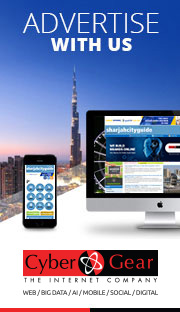|
Curators and specialists from around the world gathered in Sharjah for a pioneering conference aimed at improving intercultural communication in museology and museum practice.
The three-day symposium, hosted by the Sharjah Museums Department (SMD) in partnership with Germany’s Goethe-Institut, Berlin State Museums, the Berlin University for Technology and the Sciences (HTW) and the Volkswagen Foundation, recently took place at the Sharjah Museum of Islamic Civilization.
Entitled ‘Appropriate Museology equals Appropriate Language’, experts discussed the crucial importance of a culturally “appropriate language” that both acknowledges and mediates cultural differences in a multi-cultural and multi-lingual museum environment, be it in the Emirates or elsewhere in the world.
The exact meanings of concepts and professional language used in museums can often be distorted in translation because of subtle differences in the way they are understood by people of different cultures, and this can lead to misunderstandings and challenges. The conference aimed to address these issues and to stress the importance of intercultural communication and translation in a museum context – from the way objects are collected, interpreted and displayed to culturally appropriate interactions among museum staff and with a multitude of audiences.
In the development of already existing museums and new museum projects, the issues of appropriate intercultural language and translation are becoming ever more important, explained Dr Ulrike Al-Khamis, Strategic Advisor – Islamic and Middle Eastern Arts at Sharjah Museums Department, who worked on the concept of the conference with Dr Susan Kamel, project manager of the Goethe-Institut Gulf Region.
She continued ‘This is particularly so as to this day, more often than not, museum projects in non-western regions of the world have relied and continue to rely on western or western-centric concepts, methodologies, terminologies, expertise and communicative patterns without much in-depth intercultural dialogue or discourse addressing and engaging with the specific cultural needs of a place and its people.”
The experts who came together in Sharjah included curators and museum educators as well as specialists in translation and cultural studies from as far afield as Singapore, Malaysia, Africa and Europe. Over the three days, they exchanged ideas on how best to tackle the challenges posed by language in museum work, particularly when translating from one language to another.
Dr Susan Kamel, project manager for the Goethe-Institut Gulf Region, said: “In a globalising world, appropriate intercultural communication in museums – be it among museum professionals or between museums and audiences, is crucial, not only with regard to the successful delivery of a museum’s general objectives within its respective society, but in particular as a tool in furthering intercultural dialogue, understanding and peace-making, both at home and beyond.”
The conference was the latest collaboration in SMD’s ongoing relationship with the prestigious Goethe-Institut and Berlin State Museums, established in 2013 with the signing of a formal Memorandum of Understanding. Since then, the three organisations have collaborated on a range of initiatives, including a major international exhibition and professional exchange programmes, all with the underlying aim of promoting positive cross-cultural cooperation, development and dialogue through museum collections, art and culture
“By bringing together many different professional and academic disciplines, we hope that this highly innovative conference is contributing to the growing discourse on intercultural communication in museums. This ground-breaking event cements a programme of ongoing collaboration with our partners from the Goethe-Institut, the Staatliche Museen zu Berlin and the Berlin University for Technology and the Sciences (HTW). We hope that its outcomes will lead to further fruitful and significant projects,” Manal Ataya, the Director General of Sharjah Museums Department, said at the launch of the conference.
|

